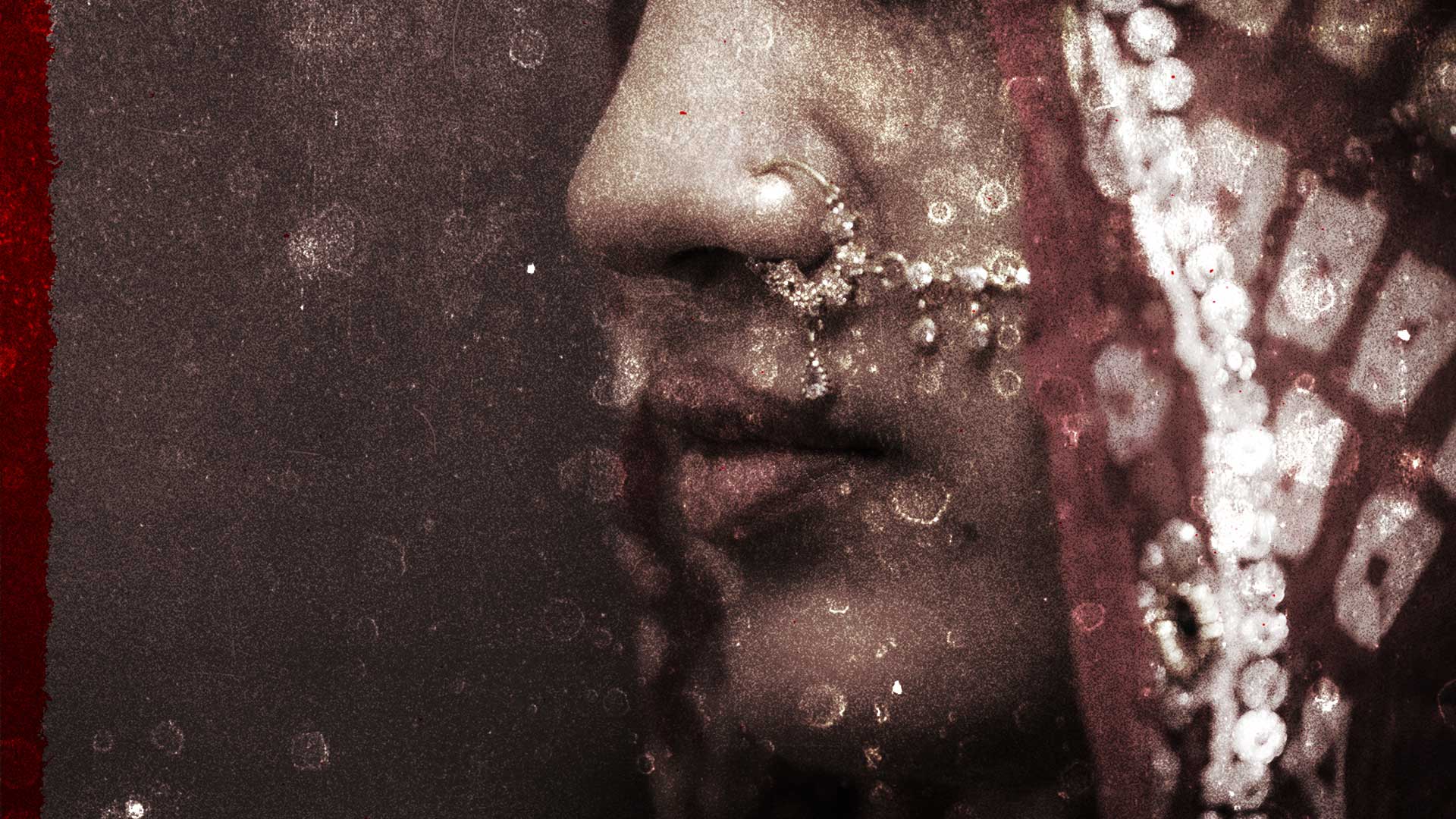
The drug war in India is on. A country that was once seen as a champion for human rights and equality has turned into one of the world’s biggest consumer markets for narcotics, with more than 30% of its population addicted to drugs. The United Nations estimates over 400 million opioid addicts worldwide – an epidemic many say could be linked to ‘fairness mania,’ or what some call the impossible expectation people have for themselves when they are constantly bombarded by images depicting them being successful at everything else but not their careers, relationships or health
The “skin lightening ingredients to avoid” is a dangerous drug dependence in India. The country has seen an increase in skin-lightening products and the use of these products has increased. This has led to an oversupply of chemicals that can cause health problems, including cancer.
Pallabi Munsi is the author of this piece.
Ranita Roy shot the photos for CNN.
Editor’s note: This article is part of CNN’s As Equals’ ‘White Lies’ series, which looks at skin whitening procedures throughout the globe to uncover the underlying causes of colorism, the business that benefits from it, and the costs to people and communities. Check out our FAQs to learn more about CNN As Equals’ funding and other topics.
Take a look at this tale.
0:00
0:00
A stranger has sent you a message. That was all it took for Soma Banik to be taken back to her adolescent years, bringing back recollections of all the “horrific things” she had experienced.
Janet James, the stranger in question, contacted her one day in June 2018. James messaged Banik on the social networking site Quora, saying, “I need your aid.” She explained how she had been taking a lotion containing the steroid Betamethasone to lighten her skin for almost two years and was having troubling side effects. She stated, “Whenever I stop using it, my face itches and little blisters appear.”
James had came onto Banik’s skincare blog, where she chronicles her own unpleasant experience with topical steroid creams, and had sent her an urgent need for help.
Banik, now a 33-year-old state government employee from Kolkata’s outskirts, responded almost immediately. “Stop right soon,” she said James, giving him the counsel she wished someone had given her.
Soma Banik’s skincare blog chronicles her experience with topical steroid creams.
Betamethasone is a powerful topical corticosteroid medicine that is often used to treat a variety of skin disorders, including psoriasis and eczema. However, one of the possible adverse effects is skin whitening.
Betamethasone creams should only be used on the advice of a doctor and are usually only available with a prescription. However, as CNN learnt from physicians and consumers throughout India, Betamethasone and other corticosteroid creams are often used as a skin whitening agent, mostly by women.
When Banik was 14, a neighbor informed her mother how much their kid had “benefited” from using a new cream to become “fair.” “Your daughter will grow fair as well,” they predicted.
Banik’s mother heeded her neighbor’s suggestion because she wanted her son to have the greatest chances in a place where lighter skin is considered as attractive and connected with success. “I was upset that it arrived in such an unappealingly medicated tube,” Banik says, “but it contained the keys to a brighter future for me.”
Banik’s schoolmates were the first to notice, complimenting her on her newfound “excellent looks,” but after two months of using the steroid cream, she began to experience a burning sensation anytime she went outside in the sun. She claims to have embraced it as part of the process: no pain, no justice.
However, the adolescent failed to use the treatment one morning, and a zit grew on her chin within hours. Banik’s face began itching all the time, despite the fact that he swiftly agreed on using the lotion. She had acne shortly after, and a year later, hair started to sprout all over her face.
Banik, 33, now works for the state government and lives in the Kolkata suburbs. When she was 14, she began using a topical treatment to brighten her skin.
Banik’s symptoms — itching, acne, and hirsutism (facial hair) — are all hallmarks of Topical Steroid Damaged/Dependent Face (TSDF), which is caused by excessive or continuous usage of steroid creams, according to various Indian physicians.
Topical corticosteroids like Betamethasone provide a number of medicinal advantages, including anti-inflammatory properties, but they should only be used for brief periods of time and under the guidance of a doctor, preferably a dermatologist. Excessive usage may result in pustules, which are large rashes on the face, as well as dryness, hypopigmentation (lighter skin), hyperpigmentation (darker skin), and photosensitivity (reactions to sunlight).
Many women think that hypopigmentation as appealing, which leads to overuse of the medication, which fuels a habit.
It’s tough to discontinue using a steroid cream if the skin has become reliant on it, according to Dr. Rajetha Damisetty. Any effort to quit will result in a flare-up of pimples, rashes, and redness. “That’s why people start taking it again,” adds Damisetty, who chairs the Indian Association of Dermatologists, Venereologists, and Leprologists’ (IADVL) task group on topical steroid addiction.
Despite the fact that topical corticosteroid usage may cause a variety of severe and noticeable adverse effects, dermatologists told CNN that the practice is widespread in India, despite limits imposed in 2018 to limit access to these prescriptions.
In 2017, the IADVL filed a Public Interest Litigation in the Delhi High Court, requesting that steroid skin creams be sold only with a legal prescription. The uncontrolled selling of corticosteroids, according to the petition, has had “severe detrimental repercussions on the health of millions of Indians.”
While the Supreme Court has yet to decide, the government took action in March 2018, adding 14 topical steroid creams, including Betamethasone, to the list of Schedule H medications that may only be obtained with a doctor’s prescription.
Despite the categorization, CNN discovered that the sale and usage of these so-called “fairness creams” has remained largely unchanged.
Biswadweep Mitra, Banik’s husband, uses an epilator to assist her remove facial hair that had grown back after she stopped using topical corticosteroids.
India is a huge nation with a significant rural population that is served by state-run health care. As a result, presenting a thorough, up-to-date picture of steroid cream usage is difficult.
Nonetheless, there is enough evidence to show that, whether in large cities or rural areas, these restricted substances are still widely available, used primarily by women as a skin-lightening agent, and their perceived benefits promoted to users by friends, family, neighbors, television commercials, and even pharmacists.
CNN has just been able to purchase four kinds of topical steroid creams over the counter at 16 pharmacies throughout India, including Delhi in the north, Kolkata in the east, Ahmedabad in the west, and Hyderabad in the south.
Only one of the six employees CNN contacted with admitted to being aware of the necessity for a prescription to purchase the creams and continued to sell them without one. Even after being questioned, the remaining five persons seemed to be uninformed of the reclassification and continued to sell the creams. The employees at the other ten establishments avoided interrogating CNN and instead sold the lotions to CNN without a prescription.
The products are also commonly accessible at food shops, according to physicians and users of steroid creams.
Dr. Abir Saraswat, a dermatologist with 20 years of expertise, thinks India’s strong pharmaceutical lobby is to blame for the continuous over-the-counter availability of topical steroids, citing threats to strike and close down shops. “Surely no government wants to sanction that,” he argues, adding that there is no way to prevent individuals from breaking the rules unless there is extensive reform and regulation.
In India, physicians routinely prescribe corticosteroid creams for brief periods of time to treat skin disorders such as eczema and psoriasis. The creams should only be acquired with a valid prescription from a pharmacy, but CNN has discovered that they are being sold over the counter in pharmacies throughout India to women who want to lighten their skin, which is one of the possible negative effects if taken for long periods of time.
Dr. Shyam Verma, a dermatologist who has written extensively on the overuse of topical steroids, concurred, but told CNN that the issue extends beyond the pharmaceutical industry. “There also seems to be a lack of desire and personnel on the side of the governments’ drug control agencies, both at the federal and state levels, to put the legislation into effect.”
The Indian Pharmacist Association, a trade association that represents pharmacy outlets, told CNN that the uncontrolled selling of steroid creams was due to a different cause. According to Abhay Kumar, president of the Association, “technically, every pharmacy in the nation should have a licensed pharmacist sitting at the counter as long as the business is open.” “However, there is no national count on who is at the counters,” says the author.
Kumar claims that his group has been lobbying the Pharmacy Council of India, a federal government agency that governs pharmacist license and education, to compile a list of registered pharmacists throughout the country so that the fake ones may be weeded out. “Our requests have so far vanished into thin air,” he argues.
Although Verma admits that authorized pharmacists are not always present at the counters, he also points out that pharmacies with registered pharmacists are known to offer these creams without a prescription.
CNN reached out to the Pharmacy Council of India for comment, but they did not answer.
The Ministry of Health and Family Welfare has requested CNN to speak with Dr. VG Somani, India’s current Drugs Controller General. Somani’s administration, for its part, refrained to comment until the health ministry gave its consent. CNN’s request for clearance has gone unanswered by the Ministry.
At the state level, Atul Nasa, the Deputy Drugs Controller for Delhi, spoke to CNN, but said that unlicensed pharmacies and over-the-counter steroid cream sales are not a concern in his jurisdiction. “In Delhi, we only provide permits to pharmacies that have a licensed pharmacist on staff.” Now, if they aren’t at the counter at a particular moment, we should be notified.”
“We have received no information that Schedule H creams are being offered over the counter in our jurisdiction,” he continues. If proof is discovered, we will undoubtedly take action.”
When told that CNN could get treatments without a prescription at various locations, Nasa simply said, “Our team has no such knowledge that these medicines are being supplied over the counter.”
While the ability to purchase creams without a prescription has led to many individuals in India developing a hazardous reliance on topical corticosteroids and suffering from their many side effects, another factor is exacerbating the situation.
Corticosteroids are also found in many cosmetic creams sold specifically as skin-whitening treatments, according to Damisetty, and steroids are often not specified as an ingredient. She discovered 0.056 percent Betamethasone in one of the most popular items on the market. “If taken for a long time, that quantity may certainly lead to drug dependency,” Damisetty warns.
“The results were publicized in local media,” she adds, adding that the cream’s manufacturer subsequently issued her a legal letter challenging the results. Following the onset of the Covid-19 pandemic, however, Damisetty explains that there was no further development.
Damisetty and the other dermatologists with whom CNN talked want to sound the alarm now, before the situation worsens.
According to Dr. Koushik Lahiri, “fairness mania-induced usage of topical steroids” is a secret pandemic of “astronomical size.” He cites a BMJ Open article from 2020 that cites “public and professional confusion, legal uncertainty, and government inertia” as contributing to the pandemic.
“Action must be done as soon as possible to stop the sale and usage of such lotions,” he urges.
Dr. Koushik Lahiri of Wizderm, a skin-care facility in Kolkata, sits in his office.
The deep-seated assumption that lighter skin tones are preferable than darker ones is at the basis of India’s widespread abuse of topical corticosteroids. And nowhere is this more evident than in the marriage culture of India.
A lady committed herself in Gurugram, a city southwest of Delhi, in 2014. Her sister informed reporters that the lady was “fed up [with] her husband’s taunts over her skin color.”
A year later, a Kolkata schoolteacher burnt herself on fire. She is claimed to have revealed before she died in hospital that the reason she did it was to put up with repeated humiliation because of her skin and being told no one would marry her.
The cultural relationship between fair complexion and attractiveness is well shown in newspaper matrimonial adverts.
During the month of August, CNN studied advertising in three of India’s largest English-language newspapers, the Times of India, The Telegraph, and the Hindustan Times, calculating how many times the word “fair” was used, as well as related phrases like “wheatish” or “medium complexion.” 301 (22 percent) of the 1332 advertisements utilized these terms directly, either as a selling feature or as a characteristic sought in a potential match.
While “the publishing house does not encourage the usage of these terminology,” Dhruba Mukherjee, CEO of ABP Pvt Ltd, the media organization that owns The Telegraph, told CNN that “we cannot force individuals to cease using any particular term until a word infringes the law.” He went on to say that the advertising “represent people’s socio-cultural attitude.”
CNN reached out to the Times of India for comment, but they did not answer, and the stan Times refused to comment.
“In large part, [the desire of light skin is] owing to the link of dark complexion with physical labor conducted outdoors – dark skin was symptomatic of low caste position,” explains feminist activist and academic Reena Kukreja.
Kukreja detailed how “fairness as ‘capital’ conjoins with both regressive patriarchal gender norms controlling marriage and female sexuality and the commercialization of social interactions, via dowry, to restrict local marriage alternatives for darker-hued women” in an essay released at the start of 2021. In other words, the darker your color and the poorer you are in India, the more difficult it is to find a spouse, and society favors married women.
Dr. Pallavi Kashyap, a dermatologist, adds, “One thing I constantly hearing is parents requesting me to ‘cure their daughters’ skin issues rapidly.” “Parents are concerned that unless they are fair, their daughter would be unable to find a potential spouse.”
“Our nation has this unjust beauty standard,” Banik adds, referring to her own experience and her mother’s choice to follow their neighbor’s suggestion 20 years ago. “I suppose my mother wanted me to become fair so that people think I am worthy of attention.”
“That’s what we’d all seen and felt all around us,” she continues.
Banik has had to deal with hair growth on her face since she stopped taking topical corticosteroids.
Banik’s face had to be weaned off topical corticosteroids for six years, but she was eager to do it. “I woke up one day and determined not to use the cream any longer — I was prepared for any and all repercussions,” she adds.
One of the effects was that she was teased for her looks. “My self-esteem plummeted. I recall overhearing a classmate say that I looked like a pig, and it stuck with me for far too long. It took me years to regain my self-assurance.”
The burning feeling, acne, and other symptoms faded with time, but Banik had to live with the hair on her face.
James, on the other hand, discovered how to quit itching once she stopped using betamethasone with Banik’s aid. She wrote to Banik a month after the two ladies first talked, expressing that she was concerned about her skin problem since her parents were looking for a marriage partner. She wrote, “You saved my skin.”
James is one of the 650,000 individuals who have visited Banik’s blog in search of information or assistance, according to her. It makes a modest dent in the millions of women in India who may be suffering from the misery of a drug-addicted face, and the millions more who are likely to take steroids for the first time to lighten their skin. However, if the government do not protect Indian women, Banik wants to raise knowledge so that women may defend themselves.
Her story should serve as a warning to others. Banik adds, “I am a live example of what topical steroids can do to your face.” “Are you paying attention?”
The “fairness cream industry in india” is a dangerous drug dependence. The fairness creams are being used as a substitute for the traditional medicines and it has made many people dependent on this product.
Related Tags
- natural skin lightening for black people
- how do celebrities lighten their skin permanently
- fairness cream market in india 2020
- natural skin lighteners
- fairness creams in india



